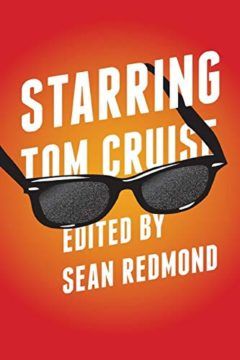Andrew Key at the LARB:
 On my first viewing of Top Gun: Maverick, I was moved to tears. Many men who I’ve spoken to about the film have admitted to crying while they watched it. I cried, despite my awareness that I was being aggressively manipulated by a work of vainglorious, sentimental, and stupid propaganda for the US military. This is the only Cruise film which has moved me in this way. Between the aerial stunts, Top Gun: Maverick is a film about coming to terms with the death of the father: Cruise’s Maverick finds himself stuck in the complex situation of grieving for his peer, Iceman (Val Kilmer), who had become his surrogate father-protector, while simultaneously navigating his own role as a surrogate father-protector to Rooster (Miles Teller), the son of the man whose death he caused in the film’s prequel. Kilmer is only two years older than Cruise, but in Top Gun: Maverick he is coded as older and wiser, almost a mentor, due to his seniority in rank. Cruise/Maverick’s peers have aged around him, but he remains stuck in perpetual adolescence. This is a recent example of a long trend: Cruise’s filmography is filled with troubled relationships between absent or disappointing fathers and the sons who suffer. There is certainly scope for speculation about the influence the difficult relationship with his own father has had on the roles Cruise chooses and shapes.
On my first viewing of Top Gun: Maverick, I was moved to tears. Many men who I’ve spoken to about the film have admitted to crying while they watched it. I cried, despite my awareness that I was being aggressively manipulated by a work of vainglorious, sentimental, and stupid propaganda for the US military. This is the only Cruise film which has moved me in this way. Between the aerial stunts, Top Gun: Maverick is a film about coming to terms with the death of the father: Cruise’s Maverick finds himself stuck in the complex situation of grieving for his peer, Iceman (Val Kilmer), who had become his surrogate father-protector, while simultaneously navigating his own role as a surrogate father-protector to Rooster (Miles Teller), the son of the man whose death he caused in the film’s prequel. Kilmer is only two years older than Cruise, but in Top Gun: Maverick he is coded as older and wiser, almost a mentor, due to his seniority in rank. Cruise/Maverick’s peers have aged around him, but he remains stuck in perpetual adolescence. This is a recent example of a long trend: Cruise’s filmography is filled with troubled relationships between absent or disappointing fathers and the sons who suffer. There is certainly scope for speculation about the influence the difficult relationship with his own father has had on the roles Cruise chooses and shapes.
more here.
